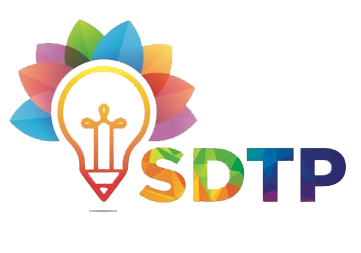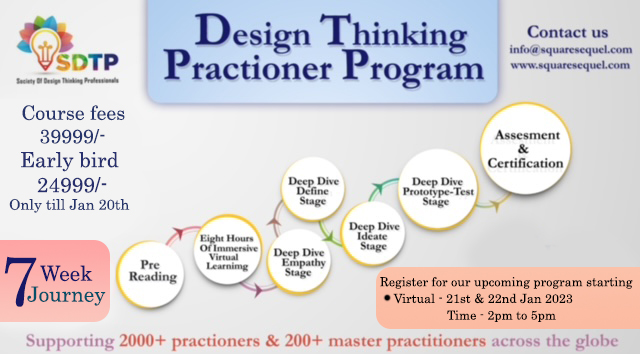An interview lasts for an hour, maybe rounds of interviews may take a little longer. In that timeframe, is it possible to identify the right talent for your organization? With a Behavioral Event Interview by your side, it is possible. In today’s business environment, every leader needs to include BEI in their toolkit.
BEI is not just an interview, it is a strategic tool designed to cut through the noise and pick the best fit who will drive your organization forward. Identifying candidates who possess the necessary skills and align well with the company culture, demonstrate resilience, handle stress adeptly, navigate ambiguity, collaborate effectively, and showcase resourcefulness is pivotal for both short-term and long-term success.
By conducting thorough, behavior-focused interviews, organizations can significantly influence their team’s success and the overall progress of business objectives. Let us dive into the essentials of conducting a Behavioral Event Interview, simplifying the process without sacrificing effectiveness.
How to Conduct a Behavioral Event Interview?

Preparing for and conducting behavioral interviews requires careful planning and coordination to ensure fairness and effectiveness. Here’s how to ensure your interviews are conducted smoothly:
Selecting Interviewers
When selecting interviewers, it’s essential to prioritize strategic considerations over mere convenience in scheduling. Opt for individuals who are well-suited to conduct fair and effective interviews. This involves choosing interviewers who fulfill strategic needs within the organization, such as hiring managers, key team members, or influential organizational stakeholders. Selective interviewers must possess in-depth job knowledge and can effectively evaluate critical behavioral and technical competencies.
Moreover, they should have strong communication skills and be capable of engaging candidates in comfortable discussions rather than conducting rigid interrogations. Consistency is key, so whenever possible, assign the same interviewers to conduct all interviews for a particular position to ensure consistency in evaluations. Providing interviewers with behavioral interviewing training, especially if they lack prior experience, is essential to ensure they understand the process and criteria for assessment.
Before interviews commence, it’s important to have all interviewers thoroughly review the behavioral interview questions and rating scale. Encouraging group discussions can help ensure alignment in approach and interpretation of answers. By following these guidelines, organizations can ensure that interviewers are well-equipped to conduct effective behavioral interviews and make informed hiring decisions.
Opening the Interview/ Warming Up
It sets the tone for effective communication and rapport-building between the interviewer and the candidate. It begins with expressing gratitude for the candidate’s interest in the organization and acknowledging their presence, creating a welcoming atmosphere. Non-verbal cues such as tone of voice, eye contact, facial expression, and body language play a crucial role in establishing a positive connection and encouraging openness from the candidate.
The interviewer then explains the interview structure, emphasizing that they will ask about specific experiences and reactions in various situations. Assuring the candidate they couldn’t have prepared for these questions alleviates apprehension. Encouraging them to take a moment to gather their thoughts and reassuring them about the authenticity of their responses fosters a comfortable environment.
During the interview, the interviewer informs the candidate about note-taking and occasional interruptions for clarification, ensuring transparency and mutual understanding. Emphasizing that there will be time for the candidate to ask questions at the end of the interview encourages engagement and participation.
It aims to ease tensions, promote communication, and facilitate a productive exchange of information. By creating a supportive environment, the interviewer enhances the candidate’s comfort and confidence, leading to more meaningful interactions and informed decision-making for both parties.
Here are some example questions to open the interview.
- Could you provide a brief overview of your professional background and then explain how it aligns with the requirements of our current position?
- Could you share insights about your current or previous role? What motivated your decision to join, and what factors are influencing your desire to explore new opportunities?
- Upon discovering this vacancy, what factors motivated you to pursue this position?
- Reflecting on your experience in [profession], what aspects do you find most fulfilling? Conversely, what challenges have you encountered, and what do you perceive as the most demanding aspect of the profession?
- What are your career aspirations in both the short and long term? Additionally, please highlight two accomplishments from your professional history that you consider significant or proud of.
- When considering a position, what three attributes do you prioritize the most?
Asking Behavioral Interview Questions
When conducting behavioral interviews, consistency, and attentiveness is paramount for ensuring a fair and effective evaluation of candidates. Interviewers should adhere to a standardized set of lead questions, maintaining the same sequence for each candidate. It’s crucial to listen attentively and take accurate notes without causing discomfort to the interviewee.
Candidates should respond to behavioral questions by narrating short stories illustrating their tasks, activities, approaches, and accomplishments. Interviewers should prompt candidates to provide specific details, eliciting evidence of their achievements, problem-solving skills, and individual contributions. Responses should focus on personal actions rather than team accomplishments.
While behavioral interviews follow a structured format, there’s room for flexibility. Interviewers should use probing questions to delve deeper into candidates’ responses, guided by verbal and non-verbal cues. Probing questions are improvised based on the candidate’s initial answers and are designed to clarify vague responses or explore areas of interest in more detail.
These questions should be open-ended and avoid steering candidates toward specific responses. Here are a few example questions:
- Could you elaborate further on that? I want to make sure I understand correctly.
- I do not follow what you mean by [specific term]. Can you provide some examples to clarify?
- When you mentioned [topic], what details come to mind? Can you expand on that?
- Let me recap what I heard. Did I capture your meaning accurately?
- Could you share an example of [specific situation]? I’d like to understand how you handled it.
- Building on what you just shared about [topic], could you also discuss [related aspects]?
Taking Notes
Effective note-taking during interviews is crucial for accurately documenting candidates’ responses while maintaining a balance that keeps them comfortable and engaged. Striking this balance can be challenging, especially when candidates speak at varying speeds or with different accents. However, interviewers must remain focused to capture essential information without causing disruption.
At the outset, it’s beneficial for interviewers to inform candidates about note-taking to minimize any potential interruptions to the interview flow. Basic details such as the date, time, duration, and the interviewer’s name and title should be recorded at the beginning of the notes or interview form. Additionally, jotting down responses to each question with key details is essential for evaluating candidates against the required competencies.
Here are some tips for effective note-taking during behavioral interviews:
- Summarize responses using shorthand or key phrases to capture the content and delivery.
- Strive to maintain eye contact and engage in conversation while taking notes.
- Refrain from including personal judgments about candidates in the notes.
- Avoid assigning ratings to responses until after the candidate has left, however, make personal ratings as soon as possible afterward.
- Ensure that notes support or justify the assigned ratings by listing actual answers and explaining how they align with the relevant competencies.
Closing the Interview
As the interview draws to a close, it’s customary to inform the candidate that the interview is concluding and to invite them to ask any remaining questions they may have. This is an opportunity for candidates to seek clarification on various aspects of the position, including job responsibilities, working hours, salary, and benefits. Interviewers should strive to answer these questions openly and honestly, although discussions about compensation may be deferred if the timing is inappropriate, such as when others are present.
To facilitate the candidate’s understanding of the company and its benefits, interviewers should provide relevant documents. As the interview wraps up, the interviewer may consider the following actions:
- Inquire about the candidate’s interest in the position based on the information shared during the interview.
- Discuss the candidate’s availability for the role.
- Request a list of references for further evaluation.
- Outline the timeline for subsequent interview rounds, the remaining steps in the hiring process, and when a decision is expected to be made.
- Provide contact information for follow-up communication and specify when the candidate can expect to hear back.
Concluding the interview with a courteous escort to the door and a sincere expression of gratitude for their time ensures that the candidate leaves with a favorable impression of the interviewer and the organization.
In a landscape where structured behavioral interviews offer significant advantages, it’s noteworthy that many companies still opt for unstructured methods. This preference might be attributed to the perceived additional effort required before the interview. Obsidian HR highlighted that behavioral interviewing demands thorough preparation and training for interviewers, a sentiment echoed by SHRM, which acknowledged the technique’s need for significant effort and planning upfront. However, viewed through a lens of opportunity, embracing structured behavioral interviews can yield substantial returns in terms of hiring outcomes and organizational success. As we explore the world of talent acquisition, embracing the rigor of behavioral interviewing may well be the key to unlocking the full potential of your team and achieving your business objectives.
https://www.linkedin.com/pulse/behavioural-interviews-what-every-hiring-manager-must-afolabi/
https://astrixinc.com/blog/conducting-behavioral-interviews-a-comprehensive-guide-for-employers/
https://www.ddiworld.com/solutions/behavioral-interviewing
https://www.obsidianhr.com/pros-cons-of-6-different-types-of-interviews/
https://www.sciencedirect.com/science/article/pii/S1576596217300427
Written By: Dr. Jimmy Jain
Edited By: Afreen Fatima
Society of Design Thinking Professionals









